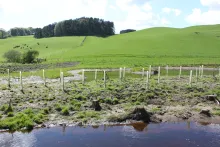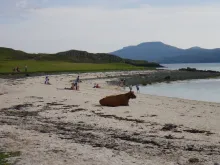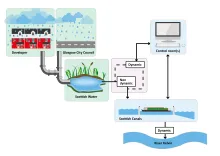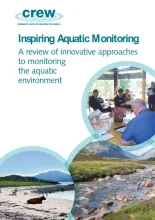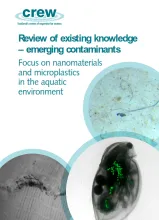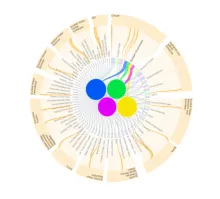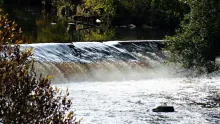Research Funding cycle: 2016-21
Land management for increased flood resilience
Natural Flood Management (NFM) (e.g. restoring watercourses, riparian tree planting, washland and wetland creation) is a core component of flood risk management strategies in Scotland. However little is known of its potential impact on the farming and land management communities, individual farm businesses, or the socioeconomic impacts and perceptions of its potential wide-spread introduction.
Monitoring guidance to assess the effectiveness of the Rural Diffuse Pollution Plan
Water quality is generally good across Scotland. Yet, SEPA estimates that around 30% of water bodies are expected to be at less than the good status required by the Water Framework Directive at the end of 2015 due to the adverse effects of rural diffuse pollution. The most widespread diffuse pollution pressures include losses of nutrients, pesticides and faecal indicator organisms in runoff.
Developing a Method to Monitor the Rural Diffuse Pollution Plan: Providing a Framework for Interpreting Catchment Data
This report is in response to a request to develop a weight-of-evidence method to enable change in priority catchments to be recorded, understood, and interpreted in the context of catchment data. The report outlines the method for collecting and combining data to assess the effectiveness of the Rural Diffuse Pollution Plan that represents Scotland’s strategy to reduce water pollution caused by agricultural land use. The report also evaluates the efficacy of the method to monitor the progress of the strategy using data from selected priority catchments.
The North Glasgow Integrated Water Management System: A review
The Metropolitan Glasgow Strategic Drainage Partnership is made up of Scottish Water, Glasgow City Council, Scottish Canals, South Lanarkshire Council, Clyde Gateway, Scottish Enterprise, Renfrewshire Council, East Dunbartonshire Council and the Scottish Environment Protection Agency (SEPA) and represents an innovative approach to water management which meets the objectives of the Hydro Nation Agenda. Since its inception the partnership has sought innovative ways to manage urban water systems that are ultimately sustainable and support the continued growth of Glasgow.
Inspiring Aquatic Monitoring - A review of innovative approaches to monitoring the aquatic environment
This project carried out an international review of monitoring networks to identify and summarise innovative approaches to inform monitoring under the water Framework Directive. SEPA said "As we review our monitoring networks to support the second cycle of the River Basin Management Plan, it's very important that we learn from approaches and opportunities developed elsewhere.
Review of existing knowledge – emerging contaminants; Focus on nanomaterials and microplastics in the aquatic environment
This comprehensive review covers the sources, impacts, risks and monitoring of water related ‘known-unknowns’, including potential emerging contaminants of concern within Scottish watercourses; data availability; impact assessment on ground and surface water including WFD compliance (and coastal environments-Bathing Water Directive); and current and future risks, monitoring and assessment methodologies.
Scotland's Water Sector: An overview
The purpose of this research is to produce a map that demonstrates the scope and scale of Scotland’s water sector and demonstrates how the different parts of the sector link together. It demonstrates how the decision making processes that influence, manage and control Scotland’s water resources are distributed throughout the sector. This research supports the Scottish Government’s Hydro Nation Strategy.

